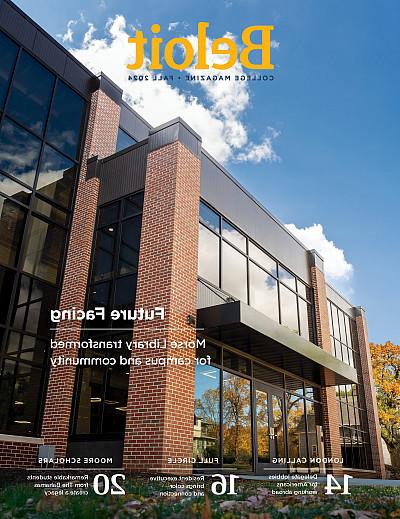The Beloiter who saved American football
From a Beloit Academy football trainer to a global coaching pioneer, Joseph Amos Pipal left an enduring legacy in sports and physical education.

Credit: Beloit College ArchivesIn the fall of 1896, a young man journeyed from a family farm in Muscoda, Wisconsin, to Beloit with a ministerial career in mind. He and his family had emigrated to the U.S. from a small town in what is today the Czech Republic. Joseph Amos Pipal liked the church and he liked oratory, but his greatest passion was sports. While at the Beloit Academy, a preparatory department of Beloit College, he joined its football team as left tackle. When he entered the college in 1900, he realized that he wasn’t talented enough to play on the college’s team, which was a powerhouse at the time. He was a keen observer of the college’s beloved coaches, brothers Jack and “Doc” Hollister, and he became interested in helping athletes train. Pipal was soon serving as the trainer for the football team, which in 1901 played both Northwestern and the University of Kansas to a tie, and lost a close, hard-fought game to Notre Dame, 5-0. The Round Table took note:
“Nothing can bring Beloit students so close together as the common interest in some good cause … have not we forgotten or overlooked what one single man has done all the season and is doing now for the team and the college? That man is Joe Pipal and to him is due the credit of keeping every man in shape for the work … “Joe” is not a professional, but he has put lots of study and thought into his work so that he might do all well and wisely.”

Credit: Beloit College Archives
Pipal left Beloit and began his coaching career at Doane College in Nebraska, after which he studied for a year at the University of Chicago under famed football coach Alonzo Stagg. Over the next several years, Pipal coached at Dickinson College, the University of Omaha, and the University of South Dakota, and studied coaching and training at Yale and Harvard. From 1911 to 1916, he served as the director of physical education and track and football coach at Occidental College in Los Angeles, where his football teams won four championships and his track teams, three.

Credit: Beloit College ArchivesIt was at Occidental College that Pipal revolutionized football by introducing the “lateral pass” — a play common in rugby, but not previously used in American football — where a player tosses the ball to a teammate parallel to or away from the opponents’ goal line. A 1915 article in The New York Times reports that Pipal introduced the technique in a game against the University of Utah in 1913. Upon his retirement from coaching in 1946, the Occidental Alumnus remarked on the significance of the lateral pass:
“Writing in a recent issue of the Highland Park News-Herald, of which he is managing editor, Oran W. Asa credited Mr. Pipal with the preservation of American football with his invention of the lateral pass … According to Mr. Asa, Mr. Pipal invented the lateral pass to demonstrate that all the open features of rugby football, which in 1913 threatened to replace American football, could be adapted to the American game. His demonstration swept the athletic world and American football was saved.”
Oregon Agricultural College (now Oregon State University) hired Pipal in 1916, and while serving as their athletic director and coach, he made another contribution to football — mud cleats. These longer cleats provided his players with better footing in wet, muddy, or snowy conditions in the days before artificial turf and covered stadiums.
When the U.S. entered World War I in 1917, Pipal left Oregon to become physical director at Camp Kearny, in San Diego, California. Within nine months, the military transferred him overseas to serve as track coach for the American Expeditionary Forces team, which participated in the 1919 Inter-Allied Games in Paris. A year later, he went to the newly-founded republic of Czechoslovakia, where he became the national director of physical education and trained their track team for the 1920 Olympics. He eventually returned to Occidental College, where he coached football and track for the rest of his career, leading many of his teams to Southern California Conference championships.
Pipal kept in touch with Beloit College over the years, mailing clippings and notes about his career to the alumni office and visiting campus in 1931.
Pipal, who passed away in 1955 at age 75, lived to see American football become one of the country’s most popular sports, one that to this day features the lateral pass.
Condensed from “Fridays with Fred,” published online September 27, 2013.




